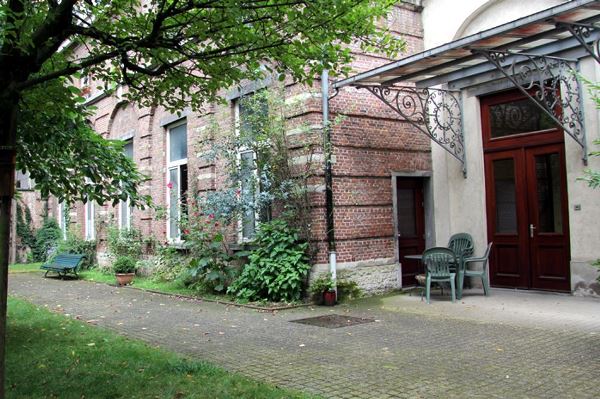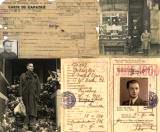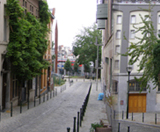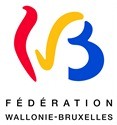New videos (only partially in English)
Summary, abstracts and full texts of issue no. 112
Philippe Mesnard (Editor in chief): Editorial: D'où viennent les images (pdf in French) (pdf in Dutch)
Portfolio / Auschwitz (pdf in French and Dutch)
Dossier: Les enfants de la Guerre d'Espagne. Expériences et représentations culturelles
Edited by Didier Corderot and Danielle Corrado
Didier Corderot (Blaise Pascal University – CHEC) and Danielle Corrado (Blaise-Pascal University – CELIS): Présentation (pdf in French)
Catherine Milkovitch-Rioux (CELIS, IHTP-CNRS): Enfances en guerre: expériences et représentations culturelles (pdf) [Childhood at war: experiences and cultural representations]
-
It is only a question of locating within the general frame of Childhood Violence Exile plan (EVE) the reflection about the Spanish Civil War children, particularly upon the issue of experiences and cultural representations : who are the children we talk about, how does the question of age intervene in the fields which are here taken into account ? How do the « cultural representations » allow the child to speak ? What are therefore the views and reading of the conflict ?We’ll have to distinguish the truly childish views such as the testimony of Encarnació Martorelli I Gil, An innocent look subtitled Diary of the Spanish Civil War [Un regard innocent. Journal de la guerre civile en Espagne, Metailié, 2011] and the retrospective sources such as memories, analyses what knowledge the intimate sources bring to the children at war, in the various phases of the writing. We’ll have to see what the child’s point of view, as far as literature is concerned, brings in terms of experience and the elements which are highlighted.It is only a question of locating within the general frame of Childhood Violence Exile plan (EVE) the reflection about the Spanish Civil War children, particularly upon the issue of experiences and cultural representations: who are the children we talk about, how does the question of age intervene in the fields which are here taken into account? How do the “cultural representations” allow the child to speak? What are therefore the views and reading of the conflict?
We’ll have to distinguish the truly childish views such as the testimony of Encarnació Martorelli I Gil, An innocent look subtitled Diary of the Spanish Civil War [Un regard innocent. Journal de la guerre civile en Espagne, Metailié, 2011] and the retrospective sources such as memories, analyses what knowledge the intimate sources bring to the children at war, in the various phases of the writing. We’ll have to see what the child’s point of view, as far as literature is concerned, brings in terms of experience and the elements which are highlighted.
Alicia Pozo-Gutiérrez (Southampton University) and Célia Keren (École des Hautes Études en Sciences Sociales (EHESS), Paris – École des Hautes Études Hispaniques et Ibériques (EHEHI), Casa de Velázquez, Madrid): Des cahiers d’enfants aux souvenirs de vieillesse: récits autobiographiques d’anciens enfants espagnols réfugiés, 1940-2006 (pdf)[From Children’s Notebooks to Old Age Recollections: Autobiographical Accounts of Former Spanish Refugee Children, 1940-2006]
- This article focuses on five former refugee children from the Spanish Civil War, who fled to France during the Retirada and were later on evacuated to the United States. At two points in their lives and in two very different contexts, they wrote the stories of their lives: first in 1940, as children, and a second time in the 2000s, in their old age. A close reading of these texts provide us with exceptional empirical data to reflect on the effects of context, passage of time and age on autobiographical writing. We will focus on two main questions: firstly, the relation between self-writing and the construction of individual identities; secondly, the relation between this individual identity and the collective memory of these refugees who went through exile together.
Danielle Corrado (Blaise Pascal University – CELIS) : Récits d’enfance et discours identitaires (pdf) [Childhood Narratives and Identity-related Discourse]
- This contribution presents a corpus of testimonies written by adults who experienced the Spanish civil war and its consequences during their childhood: Traumas – Niños de la guerra y del exilio, published in 2010 in Spain by a Catalan association for historic memories retrieval (AMHDBLL). The analysis of the editorial enunciation and of the narrative sets (text-pictures relationships, writing registers) allows to highlight the individual-collective dual frame of a production striving for a legitimization and a social recognition of the Republicans' children identity. Such a determination relies on a postulated silent and scattered memory which editorial efforts aim at making more visible and audible.
Ángela Cenarro Lagunas (Zaragoza University) : Mémoires de l’après-guerre : les enfants de l’Auxilio Social (pdf) [Post-war memories: the children of the Auxilio Social]
- When the Spanish civil war was over (1939), Auxilio Social became the main welfare institution of Franco’s regime. Controlled by the fascist party, the Falange, and submitted to the state, it offered a wide range of soup kitchens and orphanages during the first stage of the Francoist regime. Thousands of children, most of them belonging to the “vanquished” in the war, were assisted by a new class of social workers composed of falangists, priests and professionals – mainly doctors and schoolteachers. They were encouraged to provide a modern assistance, conceived as a mechanism to “regenerate” the needy, and only segregation, discipline and catholic re-education could transform them into suitable individuals, “servants of the fair Spain”. One of the main objectives of the Francoist welfare was to erode their previous identities and familiar links. Nevertheless, institutionalized children’s narratives and memories are a good example of their attempt to build an alternative identity to that one promoted by the regime. Although it was a fragmented identity, it became an instrument to resist the imposition of the monolithic discourse of the “victors”. This article aims to show to what extent the Francoist elite succeeded in their purposes as well as how this peculiar resistance to the dictatorship was crucial in the definition of the power relations between “victors” and “vanquished” in the postwar Spain.
Bénédicte Mathios (Blaise Pascal University – CELIS): Poétiques de la survie: trois poètes et une romancière regardent leur enfance en guerre (pdf) [Poetics of survival: three poets and a novelist look upon their childhood within war]
- Childhood within war is a paradoxical foundation for the four writers this paper deals with: Ángel González (1925-2008), José Ángel Valente (1929-2000), Antonio Gamoneda (1931), Rosa Regàs (1933). In their respective writings, as the adults decide to talk about a personal experience within a free space – the poem, the novel –, they deal with a violent rupture, a struggle for identity, a survival. Choosing this theme to show the emergence of the subject can’t be separated from an outset whose foundations are undermined by the violence of what they have seen, of what they have heard, of what they have lived through, by the prohibition of seeing, of hearing, of living, and by the forgetting. Thus, the writing develops itself within a confusion between childhood and the genesis of creation.
Karine Lapeyre (Paris IV University): Les Pionniers: l’avenir d’une société communiste (pdf) [Los pioneros: the future of a communist society]
- Spanish war specificity, civil and ideological, leads us to take a keen interest in children fate. Both sides used them for propaganda and at the same time they tried to indoctrinate them in order to establish an ideal society according to their respective criteria.
In the 30’s youth movements were very active throughout Europe. In Spain, they radicalized during the conflict to become the breeding ground of militants and soldiers. Some of these organizations believed it was important to gain them from their younger days whereas some were strongly against that.
In the republican camp, communists followed the soviet model. Los pioneros who were insignificant at their creation in 1931 won a noteworthy influence during the conflict and became one of the pictures of communist commitment among population. Their organisation, appearance and activities show the influence of symbols and ideas conveyed by adults who wanted to set up an ideal society carrying proletarian values. The analysis of texts published for children helps us to identify the kind of society the communists intended to establish thanks to their victory.
Didier Corderot (Blaise Pascal University – CHEC): Mari-Pepa chez les rouges puis dans l’Espagne bleue ou les tribulations fictionnelles d’une fillette pendant la Guerre d’Espagne (pdf) [Mari-Pepa among the reds then in blue Spain or fictional tribulations of a little girl during Spanish Civil War]
- Soon after the military uprising which took place in July 1936 carlist and falangist militias became, in the rebel area, the flagship of youth militarization. Therefore they leant on their respective organizations: Pelayos on the one hand and Flechas on the other hand. Both were responsible for instilling in young people values that mixed warlike and religious dimensions at various levels as well as hatred for the enemy who became the “red” as a result of an ideological simplification. In order to spread their propaganda, each of the two organizations was endowed with a children’s magazine and they merge with each other after the Parties Unification Order was published in April 1937 by the early pro-Franco power. The following item is based on one of them, Flecha, and particularly on Mari-Pepa, a young heroine of children’s tales, both a witness and a protagonist of Spanish Civil War who, first of all, conveys the ideology of the Falange and then that of the new State.
Viviane Alary (Blaise Pascal University – CELIS): Enfance en guerre dans la revue Chicos (1938-1945 (pdf) [Childhood confronted to war in the comic magazine Chicos (1938-1945)]
- This paper deals with children’s representations and productions as they were presented in the Spanish comic magazine Chicos during and after the Civil War, wich was partly contemporaneous with the Second World War. The paper’s aim is to focus on the main topics and series of the magazine and to analyze the way they progressively changed and provided a sort of sheltered area for young readers confronted to war. At the same time, the editors managed to fit into the cultural requirements of the Franquist dictatorship, which was trying to eradicate the republican heritage and to enforce new symbolic references, setting thus new milstones for national identity.
Other
Dr Yves Louis (Belgian Academy of Pediatrics) & Marc Verschooris (Hoogeschool Gent): Leonardo Conti et ses rapports avec les médecins belges pendant la Seconde Guerre mondiale (pdf) [Leonardo Conti and his relationships with Belgian doctors during the Second World War]
- This article recalls the contacts of Leonardo Conti, Reichsgesundheitsführer SS and Secretary of State of the ministry of interior matters of The Third Reich, with the doctors and the Belgian collaborative medical organizations during the Second World War. These contacts were more in number than previously described.
The role of his mother Nanna Pauli Conti, president of the National-Socialist Union of midwives is also approached. She controlled in person the midwives-organization in Belgium and the maternities of the Lebensborn of Wolvertem-type, in the suburbs of Brussels..
Sara Vandewaetere (Hogeschool Gent): Primo Levi in gesprek met de Nederlandse regisseur Rolf Orthel: een vergeten interview (pdf)
Bookstore (pdf of Book reviews)
- Arnošt Lustig, Elle avait les yeux verts, Paris, Galaade, 2010.
Reviews in French by Corinne Benestroff (Paris VIII University) and Myriam Morvan (Lycée Jeanne d’Arc, Rouen) - Pierre Laborie, Le chagrin et le venin: La France sous l’Occupation, mémoire et idées reçues, Paris, Bayard Centurion, 2011.
Reviews in French by Isabelle Galichon (Blaise Pascal University, Clermont-Ferrant II) and Anne Roche (Aix-Marseille University) - Lawrence C. Jennings, La France et l’abolition de l’esclavage (1802-1848), Brussels, André Versaille, 2010.
Review in French by Hélène Dutrinus (Docteur en Histoire de l’Art) - Sylvain Gutmacher, Auschwitz-Dachau: Novembre 1942-mai 1945, Témoignages-poèmes contes, Paris, Riveneuve / FMS, 2010.
Review in French by Ana Firoiu (Paris III University – Sorbonne Nouvelle) - Christiane Kègle, Les récits de survivance: Modalités génériques et structures d’adaptation au réel, P.U.Laval, 2008.
Review in French by Chrystel Jeandot (Paris III University – Sorbonne Nouvelle) - Christian Ingrao, Croire et détruire: Les intellectuels dans la machine de guerre SS, Paris, Fayard, 2011.
Review in French by Frediano Sessi (Mantova University) and in Dutch by Fabian Van Samang (Historian) - Jan Tomasz Gross, La Peur. L’antisémitisme en Pologne après Auschwitz, Paris, Calmann-Lévy, 2010.
Review in French by Ewa Bogalska-Martin (Pierre Mendès France University, Grenoble 2 / Pacte-CNRS UMR 5194) - Jean-Charles Szurek and Annette Wieviorka, Juifs et Polonais. 1939-2008, Paris, Albin Michel, 2009.
Jan Tomasz Gross, La Peur. L’antisémitisme en Pologne après Auschwitz, Paris, Calmann-Lévy, 2010.
Anna Bikont, Le Crime et le Silence. Jedwabne 1941, la mémoire d’un pogrom dans la Pologne d’aujourd’hui, Paris, Denoël, 2011.
Reviews in French by Judith Lindenberg (Paris III University – Sorbonne Nouvelle) - Annette Wieviorka, Eichmann de la traque au procès, Brussels, André Versaille, 2011.
Review in French by Frediano Sessi (Mantova University)
Some of our projects
Contact
Auschwitz Foundation – Remembrance of Auschwitz
Rue aux Laines 17 box 50 – B-1000 Brussels +32 (0)2 512 79 98
+32 (0)2 512 79 98 info@auschwitz.be
info@auschwitz.be
BCE/KBO Auschwitz Foundation: 0876787354
BCE/KBO Remembrance of Auschwitz: 0420667323
Office open from Monday to Friday 9:30am to 4:30pm.
Visit only by appointment.
![]()
![]()
![]()
![]()
![]()
Become a member
To become a member of Remembrance of Auschwitz ASBL, please contact us and transfer the sum of €50.00 to our account IBAN: BE55 3100 7805 1744 – BIC: BBRUBEBB with the communication: ‘Membership fee 2025’. The membership includes two issues of 2025 of our scientific journal.
DONATIONS
Donations of €40.00 or more (in one or more instalments) qualify for tax exemption for Belgian taxpayers.
In communication, please specify that it is a ‘Donation’ and mention your National Number which is required since 2024 to benefit from the tax exemption.
Subscribe
Error : Please select some lists in your AcyMailing module configuration for the field "Automatically subscribe to" and make sure the selected lists are enabled










 The Auschwitz Foundation was founded in 1980 by Paul Halter, an Auschwitz survivor. Replacing the Amicale Belge des Ex-Prisonniers politiques d’Auschwitz-Birkenau Camps et Prisons de Silésie, the primary objective of the Auschwitz Foundation is to study the history and memory of the victims of the Holocaust and the Nazi terror in a sustainable and systematic way. The transmission of memory and the preservation of archives concerning these events complete this goal.
The Auschwitz Foundation was founded in 1980 by Paul Halter, an Auschwitz survivor. Replacing the Amicale Belge des Ex-Prisonniers politiques d’Auschwitz-Birkenau Camps et Prisons de Silésie, the primary objective of the Auschwitz Foundation is to study the history and memory of the victims of the Holocaust and the Nazi terror in a sustainable and systematic way. The transmission of memory and the preservation of archives concerning these events complete this goal.





